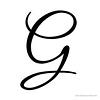Take a photo of a barcode or cover
challenging
slow-paced
This book is dense and is a time commitment to read, but it is a great overview of lgbt+ history.
Exceptional overview and surprisingly very easy to read. Gave a good background for even some present issues and I loved all the personal stories, because it makes it really drives it home that these things happened to actual people and were achieved by people with passion and drive, rather than it just being facts and statistics that don't really mean anything.
This is a very comprehensive detailing of the gay rights movement in America. It was insanely readable and fascinating. I’m really glad I read it and recommend it to anyone interested in the movement.
emotional
informative
medium-paced
emotional
informative
inspiring
sad
This was loooong, and at times a bit dry. But I found that the second half--which covers Anita Bryant, the AIDS crisis, Don't Ask Don't Tell, and gay marriage, among other subjects -- really picked up (maybe because I remembered all of the news stories so clearly) and at times it was absolutely riveting.
Really informing and interesting book If you want to learn about lgbt history in America definitely give this book a try
Lillian Faderman really believes in incrementalism. Often, she'll be explaining the legal efforts that went into building a case for some policy act, whether it's non-discrimination ordinances or the right for folks to serve openly in the military, and then she'll mention that some people opposed these efforts for not being radical enough. Cue the blithe dismissal of radical concerns. It's especially irritating when she's describing Barney Frank's efforts to decouple employment protections for trans people from protections for LGB people. She nearly outright endorses Frank's view that trans folks need to wait their turn, wait until their movement is bigger, before they should be accorded any rights. (Not to mention the scare quotes Faderman places around "genderqueer" and her tendency to use "transgender" as a noun.)
This is all very annoying to my radical queer heart. But I also think this book is a pretty good primer on American gay and lesbian history, and especially in the pre-80s sections of the book, Faderman casts the agitators and proto-wonks in colorful detail. I found her profile of Harry Hay especially interesting, and it made me want to read much more about the separatist femme socialist who formed the first organization of gay people in the United States. In the end, I wish I'd read a queer history from that perspective, instead of Faderman's. But the comprehensive review of gay and lesbian political gains is still illuminating, and if you're like me and your knowledge of American LGB history comes in disconnected bursts, you'll probably learn a lot from this book.
This is all very annoying to my radical queer heart. But I also think this book is a pretty good primer on American gay and lesbian history, and especially in the pre-80s sections of the book, Faderman casts the agitators and proto-wonks in colorful detail. I found her profile of Harry Hay especially interesting, and it made me want to read much more about the separatist femme socialist who formed the first organization of gay people in the United States. In the end, I wish I'd read a queer history from that perspective, instead of Faderman's. But the comprehensive review of gay and lesbian political gains is still illuminating, and if you're like me and your knowledge of American LGB history comes in disconnected bursts, you'll probably learn a lot from this book.
informative
inspiring







